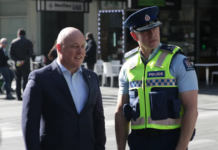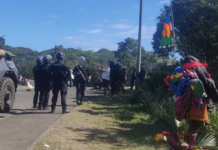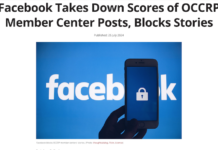Al Jazeera’s Listening Post analysis of the social media fallout after Sri Lanka’s Easter Sunday bombings.
Pacific Media Watch Newsdesk
After the Easter Sunday bombings, social media was blocked in Sri Lanka. Was it needed? Did it work? These are the questions put by Al Jazeera’s Listening Post presenter Richard Gizbert yesterday.
Plus, yellow vest protesters tussle with French media was also highlighted.
The multiple church and hotel bombings in Sri Lanka on Easter Sunday, which killed an estimated 253 people, represented the worst violence the country has seen since the end of the civil war a decade ago.
READ AND VIEW MORE: Al Jazeera’s Listening Post
In the immediate aftermath, the government shut off access to social media – Facebook, WhatsApp, Instagram, and Viber. The rationale? To stem the spread of hate speech and misinformation.
There’s a complex debate to be had, however, on the benefits of a social media shutdown versus the costs.
Millions of Sri Lankans couldn’t contact friends and family, while evidence suggests that shutting off social media does little to monitor the spread of false rumours.
And, in a country where politicians and the mainstream media often deal in misinformation themselves, an internet shutdown makes it harder to separate truth from fiction.
Lead contributors:
Nalaka Gunawardene – author and media analyst
Sanjana Hattotuwa – founder, Groundviews
Yudhanjaya Wijeratne – author and researcher
Dharsha Jegatheeswaran – research director, Adayaalam Centre
On our radar
Richard Gizbert speaks to producer Meenakshi Ravi about Indian Prime Minister Narendra Modi’s pre-election interview by a Bollywood star, and US President Donald Trump’s tete-a-tete with Twitter’s CEO.
Yellow fever: The ‘gilets jaunes’ and the mainstream media
This past week, President Emmanuel Macron announced a tax cut of $5.6 billion. It was one of several policy changes that amount to a victory of sorts for “les gilets jaunes”, or the yellow vest protesters, who first hit the streets almost six months ago over the price of fuel, the cost of living and tax inequality.
The media are more than a sub-plot in this story. Protesters complain about the under-reporting of police violence and sensationalising of the demonstrations.
Reporters have, for their part, been restricted, manhandled by both demonstrators and police, and subjected to arrest. And in their suspicion of the mainstream media, the yellow vests have taken to producing their own coverage – live-streaming across social networks.
The Listening Post’s Marcela Pizarro reports on the tussle between the media, the state, and the yellow vest protestors.
Featured contributors:
Edwy Plenel – editor-in-chief, Mediapart
Anne Saurat Dubois – political correspondent, BFM TV
Fabrice Epelboin – media scholar, Sciences Po Paris
Xenia Fedorova – editor-in-chief, RT France
Jean-Jerome Bertolus – political editor, France Info














































